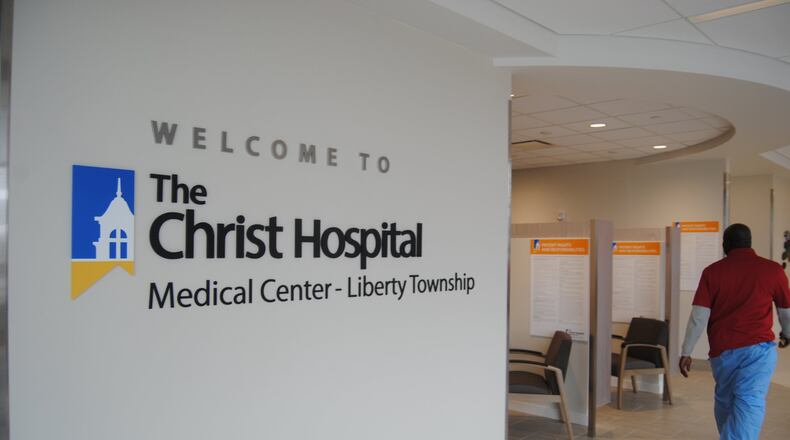RELATED: Hospital, Kroger partner on surgery price deal
Fixed price deals can help fix this problem by bundling all the costs associated with a common surgery into one sticker price instead of an unpredictable list of line-item bills. Kroger became the latest major employer to negotiate a bundled payment deal when it struck an agreement with The Christ Hospital Health Network for a fixed price for spine surgery and total hip or knee replacements for its employees with health benefits.
Bryan Bucklew, CEO of the Greater Dayton Area Hospital Association, said deals haven’t caught on around Dayton like they have in other regions that have large enough employers to negotiate for set prices.
But their effect can still be felt when employers like Kroger strike deals that could lure some of their Dayton-area employees into other cities.
Medicare and Medicaid first led the push for bundled payments, and now large employers like General Electric, Walmart and Boeing are increasingly looking at fixed price deals as an option for controlling the high cost of health care. In 2014, Lowe’s even struck a deal to fly employees for free to the Cleveland Clinic for a fixed price surgery deal, rather than pay unbundled costs at other hospitals.
When the deal works, all parties get what they want. The employer that self funds its health insurance gets controlled costs and high quality. The employee gets less bills — sometimes no out-of-pocket bills — and more coordinated care.
“What the hospital gets is, quite honestly, it directs more business to you,” said Chris Bergman, Dayton Children’s Hospital’s chief financial officer.
RELATED: Grandview Medical Center to undergo expansion as nearby hospital closes
Bergman was an architect of one of the first bundled payment deals in the area — a deal with GE employees when he worked as CFO at Christ Hospital — and he’s now looking for ways to bring bundling to Children’s.
“Most of the problem with health care is the numbers bounce around. That drives companies crazy that they don’t have predictability,” Bergman said.
Scott McGohan, CEO of employee benefits firm McGohan Brabender, said these deals are a way to control costs without making employees feel like they are being told what to do.
Employees might resent being told they can only go to one place for health care, even if that place is both cheaper and higher quality. But McGohan said employees tend to like programs that let them shop and then reward them with the employer covering the whole surgery if they opt for the provider with a fixed price.
These deals aren’t right for every employer and they aren’t right for every procedure, McGohan said. A company with mostly employees under 40 years old wouldn’t get much savings from a fixed price deal for hip replacements.
RELATED: Trump promising consumers digital-age health care approach
But for self-insured employers with large employee counts, McGohan said the savings can add up fast if employees are steered toward a $15,000 knee replacement versus a $42,000 knee replacement, and the employer is given information that shows the cheaper procedure gets the same quality outcomes.
“And then it forces all the other health systems to get really competitive in pricing, and it forces them to be very transparent in quality,” McGohan said.
These bundled deals are part of a broader push in health care to pay for results, not pay for layers of fees that incentivize providers for additional services and that pay hospitals more for follow up care for complications.
“Under the current system no one gets paid unless they do something. So the economics of health care is to do something. To do a procedure. To do a diagnosis. Now what CMS (Centers for Medicare and Medicaid) is trying to do and commercial payers are tying to do is pay for value,” Bucklew said.
Bergman said these deals also push hospitals to review how they do procedures and get more cost effective.
RELATED: High Medicaid, Medicare use in Dayton increases health care costs
Two physicians practicing at the same hospital might have learned two different ways to do a procedure and charge two different prices. But to guarantee a price to an employer, the hospital has to evaluate whether one procedure costs less but has just as high of quality outcomes, and then the hospital has to get all physicians who do that type of surgery to agree to one single way to do it.
There aren’t many examples of bundled payments in pediatrics to look to as examples, but Bergman said Dayton Children’s is considering options for procedures that are high volume enough to negotiate a fixed price on, like maybe ear tubes or tonsillectomies.
“My big message is we’re certainly looking at it. We think there is a place to help both the employer and the patient,” he said.
About the Author


